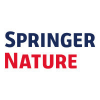Postdoc (F/m/d) for Low Level Rf Field Control with - Berlin, Deutschland - Springer Nature
Beschreibung
Postdoc (f/m/d) for Low Level RF field control with Machine Learning Methods in the EU Horizon iS
:
- Employer
- Helmholtz Association of German Research Centres
- Location
- Berlin
- Closing date 12 May 2024
- Discipline
Job Type
Researcher
Employment - Hours
Full time
Duration
Fixed term
Qualification
PhD
Sector
Academia- You need to sign in or create an account to a job.
- Job Details
- Company
Job Details:
Work group:
Science and Technology of Accelerating Systems
Area of research:
Scientific / postdoctoral posts
Job description:
Reference No. BE 2024/8
The Institute Science and Technology of Accelerating Systems is looking for
Postdoc (f/m/d) for Low Level RF field control with Machine Learning Methods in the EU Horizon iSAS Program
Tasks for iSAS
- Study and implement machine learning and artificial intelligence (e.g. deep learning) towards SRF cavity LLRF field control.
- Develop on a virtual operator to optimize the cavity operation for any working point.
- Integrate the mechanical tuning control with a ferroelectric fast reactive tuner system into the LLRF controller.
- Study the developed and implemented methods at SRF cavity teststands or with the SEALAB/bERLinPro SRF injector.
Requirements:
- Doctor and master in Physics, Electrical Engineering or Computer Science or similar degree with an emphasis on control theory
- experience in digital signal processing, RF signal measurements and related equipment as vector network analyzer, power meters, spectrum analyzers
- experience with the field of LLRF field control and operation of RF cavities in an accelerator environment
Further Information
Dr. Axel Neumann
Closing Date:
- This research center is part of the Helmholtz Association of German Research Centers. With more than 42,000 employees and an annual budget of over € 5 billion, the Helmholtz Association is Germany's largest scientific organisation._
Company:
The Helmholtz Association contributes to solving major challenges to assure the future of our society.
With more than 39,000 people on staff in 18 national research centres, the Helmholtz Association is Germany's largest scientific organization.
The name Helmholtz stands for concerted research in which networks form the key principle behind inquiring thought and action. Concerted research is efficient and flexible.The profile of the Helmholtz Association
The Helmholtz Association performs cutting-edge research which contributes substantially to solving the grand challenges of science, society and industry.
To succeed in meeting these responsibilities, Helmholtz concentrates its work in six research fields:
Energy, Earth and Environment, Health, Key Technologies, Matter, as well as Aeronautics, Space and Transport. Within each of these fields, research programs are developed by our scientists and regularly evaluated by renowned international experts. Their evaluation forms the basis for the programme-oriented funding that is allocated to Helmholtz research.
Within the six research fields, Helmholtz scientists cooperate with each other and with external partners - working across disciplinary, organizational and national borders.
Promoting young academics
Helmholtz scientists, a high-performance infrastructure and modern and efficient research management are the ingredients to the Helmholtz Association's success and global impact.
Its strategy begins with targeted recruitment of highly qualified staff at all levels, followed by comprehensive support aimed at further developing their potential.
Ensuring equal opportunities is an essential element in all talent management activities undertaken by the Helmholtz Association.The Helmholtz Graduate Schools and
Research Schools at almost all Helmholtz Centres provide doctoral students with the general and specific skills and training they need, as well as ample opportunity to network with other working groups. The period following a doctorate is decisive in determining the direction and success of a scientific career. For this reason, we are about to establish Career Centers for postdoctoral researchers in the Helmholtz centres and a mentoring programme for especially gifted PostDocs in order to foster career orientation. This equips young researchers with the skills they need to go on to head a
Helmholtz Young Investigators Group, for example. As a Young Investigator Group leader, junior scientists can independently set up their own group to conduct research in their specialist field.
Within its talent management strate
Mehr Jobs von Springer Nature
-
Working Student
Darmstadt, Deutschland - vor 1 Woche
-
Postdoc (F/m/d) / Scientific Assistant (F/m/d)
Dresden, Deutschland - vor 2 Wochen
-
Talent Attraction Specialist
Heidelberg, Deutschland - vor 1 Woche
-
Several Postdoc Positions
Duesseldorf, Deutschland - vor 1 Woche
-
W1-junior-professur Katalyse in Dirigierenden
Stuttgart, Deutschland - vor 2 Wochen
-
Phd Positions at The International Max Planck
Dresden, Deutschland - vor 3 Wochen

